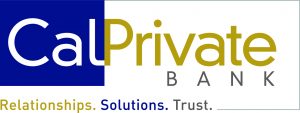Many business leaders are so busy “acquiring and protecting power” that they lose sight of what truly motivates people, leadership adviser Tony Baron told about 70 of San Diego’s top CEOs, sales experts and entrepeneurs at the quarterly meeting on Wednesday of the Sage Executive Group.
Baron, who has counseled organizations from the Ford Motor Co. to the U.S. Postal Service and business communities in the aftermath of the Columbine school shootings and the 9/11 terrorist attacks, said that a focus on profits misses what motivates people – and leads to greater business success. To lead, “communicate to the heart,” he said.
“Nothing changes a person’s life until it touches their heart,” he said with an admonition for executives with a hierarchical mindset that puts a premium on hate, fear and survival in an organization. Those are three of the four triggers of life, he said. The fourth – love – is the most important. “The only motivation that last long term is the motivation to love,” making the point that leadership is not about being a nice person, but a person who is seen as “a beacon of hope” in a workplace beset by change, uncertainty, institutional distrust and an digital revolution that has created a climate of “learned helplessness.”
Baron brings a background as a scholar, a corporate adviser and a theologian to his frequent appearances before business groups. He currently serves as Director of Azusa Pacific University’s Graduate School of Theology in San Diego and as Scholar in Residence at the Center for Executive Excellence in Carlsbad. He is the author of “The Art of Servant Leadership,” and is working on a new book, “Unlocking the Leadership Code,” that was the title of his presentation.
He pointed out that the earliest meaning of leadership was to “guide a ship in the midst of a storm,” and that the best leaders invest others in common cause by “maintaining a non-anxious presence,” by creating a “vision of stability in the midst of chaos and uncertainty.”
The best CEO is a “cultural architect,” inspiring “personal responsibility” in the workforce while maintaining “an inner compass” that leads to the true north of doing “the right thing, the right way with the right people.” That compass sustains the integrity essential to asking others to follow, and the professional strength to “excommunicate” when necessary to sustain the ethical and cultural foundation of the organization.
Ultimately, he said, “leadership is not for the sake of self but for the sake of others.”
— Chuck Buxton, Sage Executive Group


